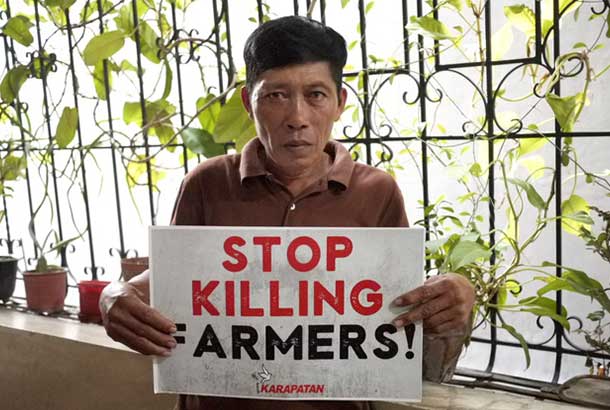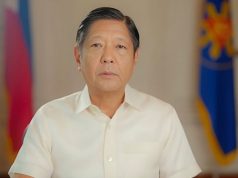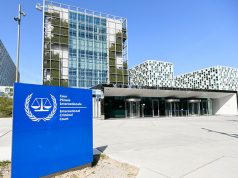BANGKOK — More than three people were murdered each week last year while protecting their land from encroaching industries, a human rights group said on Tuesday, with a four-fold increase in killings related to conflicts over water.
At least 164 farmers and land rights activists were killed worldwide last year, with the Philippines accounting for the most casualties for the first time since Britain-based Global Witness began reporting such deaths in 2012.
In 19 countries surveyed, mining was linked to 43 deaths, with fatal attacks also recorded at hydropower projects and in disputes involving agribusiness and logging companies.
“Much of the persecution of land defenders is being driven by demand for the land and raw materials needed for products we consume every day, from food to mobile phones, to jewelery,” said Alice Harrison, a campaigner at Global Witness.
“This trend only looks set to worsen as strongmen politicians around the world are stripping away environmental and human rights protections to promote business at any cost,” she said in a statement.
After the Philippines with 30 victims, Colombia had 24, followed by 23 in India and 20 in Brazil. Guatemala had 16, a five-fold increase from the previous year, the report showed.
A spokesman for Philippine President Rodrigo Duterte did not respond to an email and phone calls seeking comment.
Nearly 300 farmers, indigenous people and land rights activists have been killed since Duterte took office in 2016, according to Philippine human rights groups.
“The Duterte regime’s intensified militarization of communities has had catastrophic effects,” said Cristina Palabay, secretary general of land rights group Karapatan.
“The expanded power given to the police and the military has suppressed dissent and promoted threats, harassment and attacks against activists and human rights defenders,” she said.
Earlier this month, the United Nations human rights agency passed a resolution to investigate the mass killings during Duterte’s war on drugs, which human rights groups say has also been used against farmers and activists.
Presidential spokesman Salvador Panelo called the U.N. resolution “grotesquely one-sided, outrageously narrow, and maliciously partisan”.
While Global Witness recorded fewer killings worldwide last year compared to 207 in the previous year, it noted the increasing use of lawsuits, arrests and death threats to intimidate campaigners and stifle activism, even in developed countries.
Killings related to conflicts over water jumped to 17 from four the previous year, underlining the deadly consequences of warmer temperatures, erratic rainfall and dwindling groundwater, particularly in Latin America, Africa and South Asia, it said.
The attacks were largely connected to opposition to proliferating hydropower projects, as well as corruption in management of local water sources, Harrison said.
“With climate breakdown and increasing drought, it is highly likely that we’ll begin to see a rise in conflicts over water sources involving whoever controls them,” she told the Thomson Reuters Foundation.—Reporting by Rina Chandran @rinachandran; Editing by Michael Taylor, the Thomson Reuters Foundation










